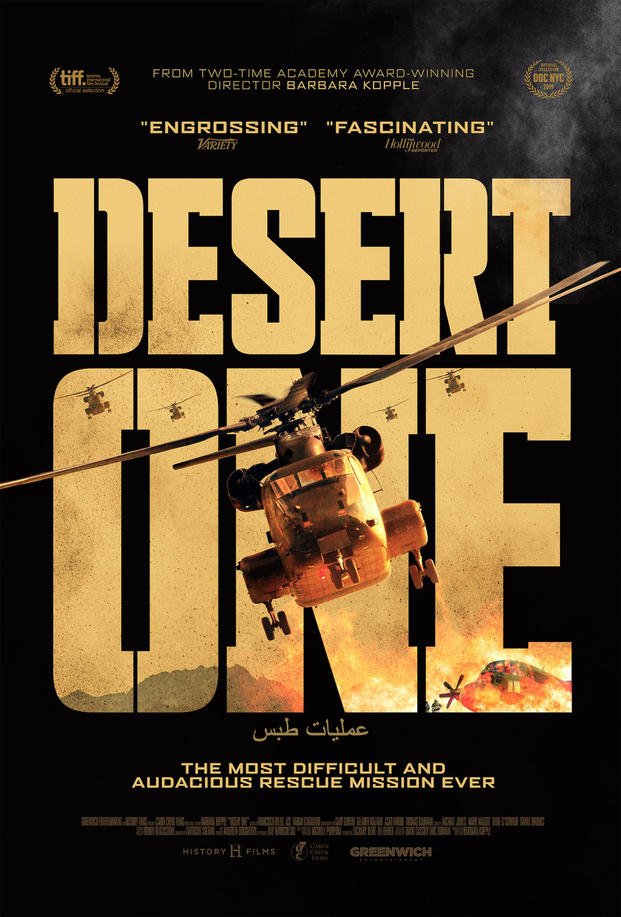Desert One
Desert One, 2020, 3 ¾ stars
Singular One
Kopple crafts a valuable history lesson
 Exclusive to MeierMovies, August 15, 2020
Exclusive to MeierMovies, August 15, 2020
It’s hard to be patriotic about a tragically bungled military operation. It’s even harder to make an emotionally satisfying film about it. But, as usual, master documentarian Barbara Kopple is up to the task.
In April 1980, as the Iran hostage crisis was entering its fifth month, President Jimmy Carter and his advisers decided to launch Operation Eagle Claw. Designed to free the 52 Americans held inside the U.S. Embassy in Tehran, the mission went badly wrong, damaging our national psyche and helping put Ronald Reagan in the White House. But the degree to which it failed is mostly forgotten today. That’s why Kopple’s film – which relies mostly on intimate interviews and partially on animated reenactments – will shock most viewers.
Kopple deserves a place on the modern Mount Rushmore of documentary directors alongside Ken Burns, Errol Morris and Michael Moore, with perhaps a separate monument for the Maysles Brothers and D.A. Pennebaker. But she’s best known not for these types of talking-heads, historical films but instead for “as they happen” docs, notably Harlan County U.S.A. (1976) and American Dream (1991), both of which won the Oscar for best documentary. (The former is arguably the top doc of all time.)
She’s also famous for her profiles of entertainers, ranging from Woody Allen to Gregory Peck to Sharon Jones to the Dixie Chicks. But one thing that links all her films, regardless of subject and style, is the remarkable trust her subjects seem to place in her and the extraordinary access she is granted. She is to film interviews what Bob Woodward is to print: Everyone will talk to her.
And in Desert One, almost everyone does. Kopple converses – in her unseen and unheard unobtrusiveness – with dozens of major players in the hostage crisis, including national leaders, prominent journalists, hostages, hostage takers, men who participated in the rescue attempt and families of the men who died. We also get archival footage, previously unheard phone conversations, a thoughtful analysis of what led to the crisis and emotional – if slightly over-produced and over-scored – re-creations of events. But it’s the interviews you will remember.
Particularly moving are the talks with former President Jimmy Carter and Vice President Walter Mondale, and the special-ops forces who felt they had let their country down. For them, this film undoubtedly represents a richly deserved “Thank you for trying.”
© 2020 MeierMovies, LLC
I’ve twice had the pleasure of interviewing Kopple, first for the 2016 Sarasota Film Festival, when we discussed her career, and then again at the 2018 festival, when we discussed A Murder in Mansfield.